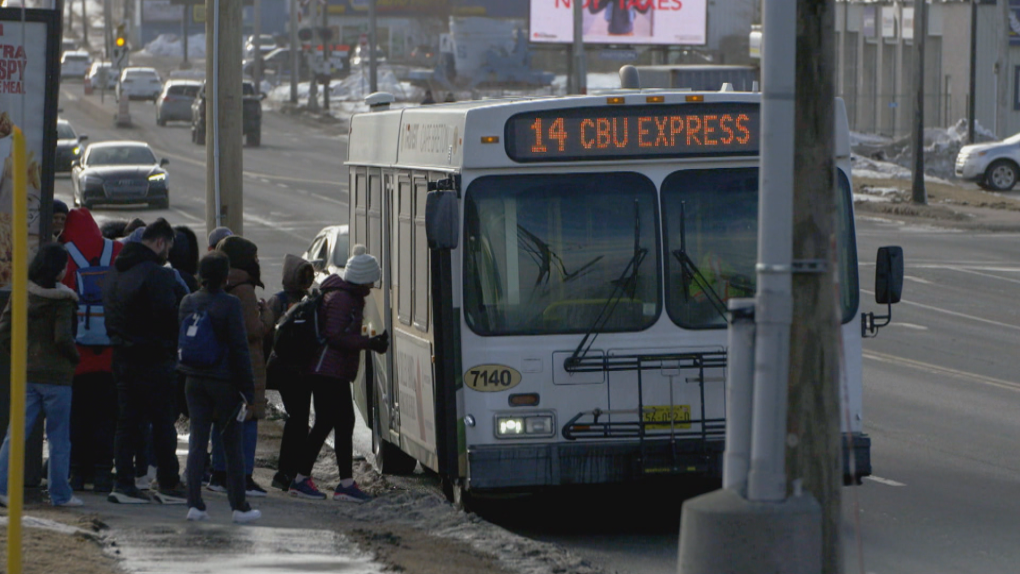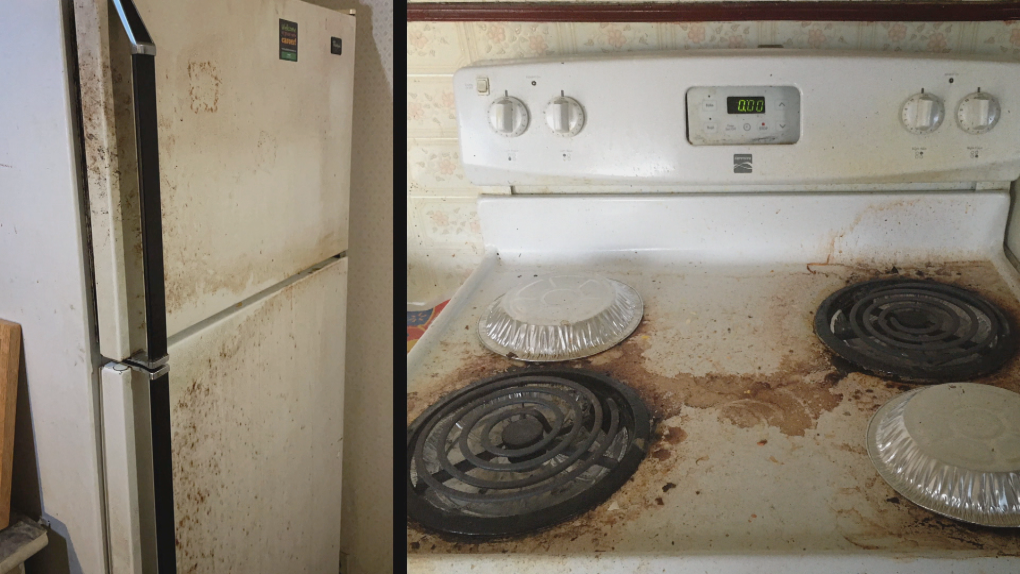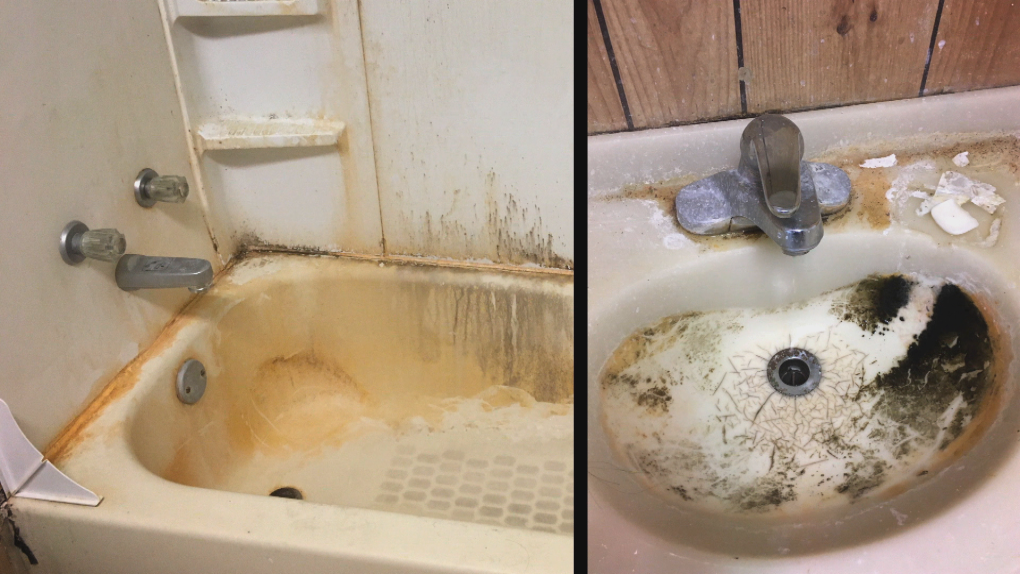Priest, neighbours issue plea for help for struggling international students in Cape Breton
It’s not everyday you see a plea from a Catholic priest in the local paper asking people to take in homeless university students.
"Recently, I learned that some of these students are sleeping in cars while they look for a place to live. That is simply not acceptable," writes Reverend Dr. Albert Maroun.
"As Cape Bretoners, we know that something must be done to ensure it stops."
Father Maroun knows the needs of international students at Cape Breton University well, because he meets them during lunch. Hundreds depend on the local community kitchen, Loaves and Fishes, for food.
It’s a community-run kitchen, primarily funded by churches around Cape Breton. The facility was overwhelmed when the university recruited thousands of newcomers in just a few years. They offer up to 250 free meals a day, the majority of them go to foreign students.
Cape Breton University has aggressively ramped up enrollment in the past five years for international students, most of whom are from India.
That’s because students from abroad often pay double what most Canadians do, which has been a saving grace for university budgets across the country.
Today, CBU has 7,300 students on campus, more than 70 per cent of them are international. That’s the highest percentage of international students from the 30 public universities W5 surveyed across the country (see chart below).
 CBU students board a bus in Sydney, Nova Scotia (W5)
CBU students board a bus in Sydney, Nova Scotia (W5)
In his letter to the editor, Maroun alleges that the university wants to make money but doesn’t take responsibility for these students.
"When the steel plant was setting up here over a century ago, they built housing first… maybe CBU should look to the past to see how it is done right."
NEWCOMERS STRUGGLING
W5 spoke with dozens of international students, both on the phone and on the ground in Cape Breton.
Many are frustrated by the lack of affordable housing, buses that don’t have enough room for students to get to school, and the challenges of finding part time jobs. But most students were too scared to speak on camera out of fear they would be penalized by the school.
"I wanted to grab the landing gear and fly back," one student tells us, when we agreed to hide her identity. "My mind just shut down for about a week after I landed here. It’s so desolate and there's nothing here."
This student had studied abroad before, where a transition team at her first university had helped her find accommodations. CBU currently has apartment listings in the community on its website and a dedicated off campus housing coordinator, but this student claims, she was not told anything like that existed and it was difficult to find a place when she arrived.
"I often wake up at midnight, 3 a.m, 4 a.m… I just know my hair is turning grey," she says about the pressure to succeed in Canada.
Before the influx of students, Cape Breton was already facing a severe affordable housing shortage. While there are dorms available on campus, there are no kitchens, so students can’t cook and must purchase a meal plan costing roughly $3,000 a semester.
Damanpreet Singh is CBU’s Student Union President and also an international student who came to Canada in 2021.
"They should have built kitchens so students could cook, but they didn’t," he said. "They don’t want students cooking in their rooms."
He says most students can’t afford to live on campus because many have already taken out personal loans and it’s much cheaper to live in the community. But he also thinks students need to do more research about housing and jobs before coming to Cape Breton.
Another student, who asked to remain anonymous, says he has poured his life savings into this degree, but has struggled to find a place to live. His first rental had rusted out sinks and bathtubs, and mice running around.
"It’s the most disgusting place I’ve ever been," he says. He temporarily moved in with a friend. He says he has lost 20 pounds from all the stress and hasn’t video-called his family since arriving in Canada in early 2023. "I'm really afraid to Facetime my family because I don’t want them to figure out how terrible I'm looking," he said.

 International students share pictures of some of the housing conditions in Sydney, N.S. (W5)
International students share pictures of some of the housing conditions in Sydney, N.S. (W5)
He also shows us the snow-filled, isolated road he was waiting on to take a bus to school.
"I was waiting for the bus for one hour," he tells us. "All my shoes, my socks, my pants were all damp."
Others tell us, at the beginning of the semester, there weren’t enough seats when the bus arrived. Many said they missed classes because of those delays. In response, CBU has purchased two city buses and added shuttles to help students get to class. But those buses continue to be crowded.
The university largely touts its growth as a success, though it acknowledges there are some growing pains. David Dingwall, the president of CBU, says the university plans to add 240 more beds on campus and is working with the private sector to generate more options in the community.
"But let's not kid ourselves, housing in every community across the country has grave difficulties and we're no exception," Dingwall says.
In 2019, CBU purchased land to develop affordable housing in the community, but no ground has been broken yet. It’s also expanding the dorms to accommodate families coming from abroad and capped certain programs for enrollment.
Here's a list of improvements made by CBU:
- CBU Continues to Take Action on Housing
- Open Letter to the Cape Breton Community
- Forever CBU Campaign
- CBU Newsroom: Cape Breton University Will Do More
'CANADIAN MAMA' HELPING STUDENTS
Community members are coming to the aid of students. Brenda Matheson from Sydney is one of them. Last year, she started noticing international students, mostly from India, everywhere.
"My community has become the nicest shade of brown," she laughs.
The 61-year-old grandmother is as Cape Breton as they come. You can hear her beautiful laugh and accent a mile away.
That warmth is what drew an international student to her doorstep, begging for a place to live. She says she couldn’t turn him away in the cold. A year later, he still lives with her, rent-free, with another student planning to move in April. From these newcomers, she started to see what was really going on in her community.
"Kids are sleeping in cars. Kids are sleeping on floors, in people's living rooms, kids are sleeping in laundromats," she claims. She says she’s ashamed that so many students pay tens of thousands of dollars to come to Canada to live like this.
Her home has since become a hub for struggling students. Many of her neighbours are also now housing foreign students because of the influx.
"I think that if you are going to invite thousands of people to any community anywhere on the planet, that maybe you would have lodgings for them, maybe there would be accommodations available, maybe there would be a job for them," Brenda says.
"These kids aren't kids. They're a commodity. They're a cash figure. They're a bottom line."
Can't see the chart of international students by university below? Click here
Watch the documentary 'Cash Cows' in the video player at the top of this article, or on our official YouTube channel.
CTVNews.ca Top Stories

Widow looking for answers after Quebec man dies in Texas Ironman competition
The widow of a Quebec man who died competing in an Ironman competition is looking for answers.
Tom Mulcair: Park littered with trash after 'pilot project' is perfect symbol of Trudeau governance
Former NDP leader Tom Mulcair says that what's happening now in a trash-littered federal park in Quebec is a perfect metaphor for how the Trudeau government runs things.
World seeing near breakdown of international law amid wars in Gaza and Ukraine, Amnesty says
The world is seeing a near breakdown of international law amid flagrant rule-breaking in Gaza and Ukraine, multiplying armed conflicts, the rise of authoritarianism and huge rights violations in Sudan, Ethiopia and Myanmar, Amnesty International warned Wednesday as it published its annual report.
Photographer alleges he was forced to watch Megan Thee Stallion have sex and was unfairly fired
A photographer who worked for Megan Thee Stallion said in a lawsuit filed Tuesday that he was forced to watch her have sex, was unfairly fired soon after and was abused as her employee.
Amid concerns over 'collateral damage' Trudeau, Freeland defend capital gains tax change
Facing pushback from physicians and businesspeople over the coming increase to the capital gains inclusion rate, Prime Minister Justin Trudeau and his deputy Chrystia Freeland are standing by their plan to target Canada's highest earners.
U.S. Senate passes bill forcing TikTok's parent company to sell or face ban, sends to Biden for signature
The Senate passed legislation Tuesday that would force TikTok's China-based parent company to sell the social media platform under the threat of a ban, a contentious move by U.S. lawmakers that's expected to face legal challenges.
Wildfire southwest of Peace River spurs evacuation order
People living near a wildfire burning about 15 kilometres southwest of Peace River are being told to evacuate their homes.
U.S. Senate overwhelmingly passes aid for Ukraine, Israel and Taiwan with big bipartisan vote
The U.S. Senate has passed US$95 billion in war aid to Ukraine, Israel and Taiwan, sending the legislation to President Joe Biden after months of delays and contentious debate over how involved the United States should be in foreign wars.
'My stomach dropped': Winnipeg man speaks out after being criminally harassed following single online date
A Winnipeg man said a single date gone wrong led to years of criminal harassment, false arrests, stress and depression.
Local Spotlight

Mystery surrounds giant custom Canucks jerseys worn by Lions Gate Bridge statues
The giant stone statues guarding the Lions Gate Bridge have been dressed in custom Vancouver Canucks jerseys as the NHL playoffs get underway.
'I'm committed': Oilers fan won't cut hair until Stanley Cup comes to Edmonton
A local Oilers fan is hoping to see his team cut through the postseason, so he can cut his hair.
'It's not my father's body!' Wrong man sent home after death on family vacation in Cuba
A family from Laval, Que. is looking for answers... and their father's body. He died on vacation in Cuba and authorities sent someone else's body back to Canada.
'Once is too many times': Education assistants facing rising violence in classrooms
A former educational assistant is calling attention to the rising violence in Alberta's classrooms.
What is capital gains tax? How is it going to affect the economy and the younger generations?
The federal government says its plan to increase taxes on capital gains is aimed at wealthy Canadians to achieve “tax fairness.”
UBC football star turning heads in lead up to NFL draft
At 6'8" and 350 pounds, there is nothing typical about UBC offensive lineman Giovanni Manu, who was born in Tonga and went to high school in Pitt Meadows.
Cat found at Pearson airport 3 days after going missing
Kevin the cat has been reunited with his family after enduring a harrowing three-day ordeal while lost at Toronto Pearson International Airport earlier this week.
Molly on a mission: N.S. student collecting books about women in sport for school library
Molly Knight, a Grade 4 student in Nova Scotia, noticed her school library did not have many books on female athletes, so she started her own book drive in hopes of changing that.
Where did the gold go? Crime expert weighs in on unfolding Pearson airport heist investigation
Almost 7,000 bars of pure gold were stolen from Pearson International Airport exactly one year ago during an elaborate heist, but so far only a tiny fraction of that stolen loot has been found.















































